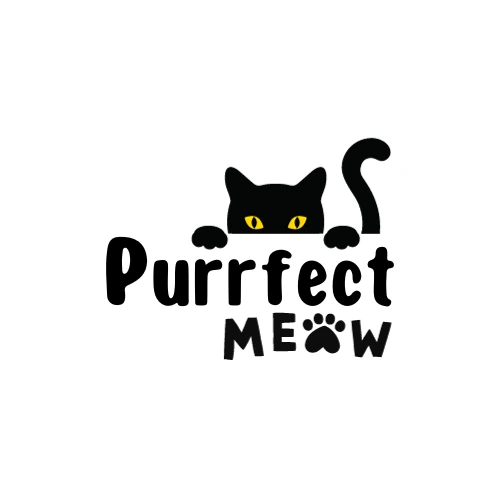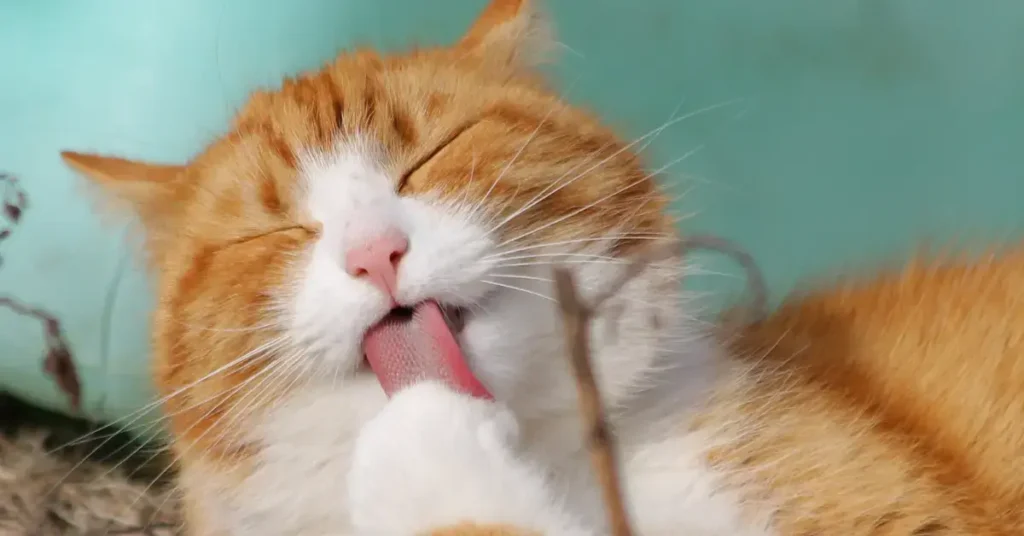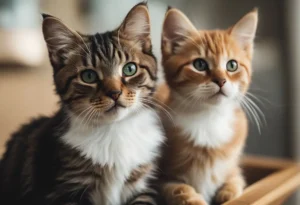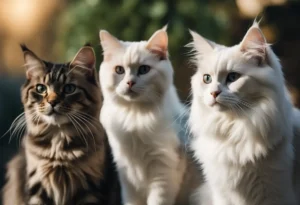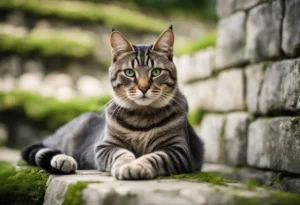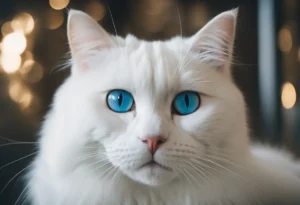Cats are known for their grooming habits, but why do cats lick their paws so meticulously? Uncover the secrets behind this behavior and how it helps them stay clean and content.
Why Do Cats Lick Their Paws
We all know that cats are fastidious creatures, constantly attending to their grooming needs with great care. It’s a fascinating aspect of their behavior that keeps them clean and bonds them with other cats.
Self-Grooming and Cleanliness
Let’s get right into it—self-grooming is second nature to our feline friends. Cats use their tongues as a washcloth to distribute natural oils across their fur, ensuring a gleaming coat. This habit is vital for their cleanliness; they use it to remove loose hair and debris. When watching a cat groom themselves, it’s clear that no spot is missed—their flexibility allows them to reach every inch, starting with their face, which they wash by licking a front paw and then rubbing it across the fur.
The purpose behind this meticulous behavior? It’s all about maintaining a healthy coat and regulating body temperature. The saliva evaporates off their fur, providing a cooling effect, and the act of grooming helps to evenly spread those crucial natural oils, which waterproof their coat and keep their skin healthy.
Social Grooming: Allorubbing and Allogrooming
Moving beyond their own fur, cats engage in what we call allorubbing and allogrooming. This is where things get really exciting and, dare we say, adorable! Allorubbing is the behavior when cats greet and rub their bodies against other cats, humans, or even furniture. It’s their way of saying “you’re part of the group,” marking their companions with their scent to intertwine their social smells.
Allogrooming takes the social aspect of grooming to another level. In this intimate display, cats will lick each other’s fur, mostly around the head and neck. Why do they do this? It’s more than just cat grooming; it’s about strengthening social bonds. It also allows cats to reach places they can’t groom on their own—talk about teamwork!
Through these behaviors, cats demonstrate their ability to keep themselves pristine and foster social connections within their environment. Now that’s a purr-fect combination of personal hygiene and community!
Reasons Cats Lick Their Paws
We see our feline friends frequently grooming themselves, and paw licking is a significant part of their hygiene routine. But this behavior can stem from various reasons, from basic cleaning to addressing discomfort. Let us explore the motivations behind this common cat behavior.
Basic Cleaning and Maintenance
Cats are meticulous when it comes to their cleanliness, and paw licking is a primary way they keep themselves spotless. Our cats use their paws as washcloths, licking them to wipe away the dirt and debris they’ve accumulated while prancing around their domain.
- Routine Cleaning: Removes dirt and dust
- Fur Alignment: Keeps fur neat and clean
Removing Food Particles
Just like we wash our hands after a meal, cats use licking as a post-meal routine. It’s not uncommon to find them carefully cleaning their paws to remove any food particles that may have stuck to them during a hearty feast.
- Food Removal: Ensures no leftover food stays on their paws
- Hygiene: Prevents the spread of bacteria from the remnants of their meal
Injury and Skin Conditions
When a cat is in pain or experiencing discomfort from an injury or skin irritations, instinctually they turn to licking. This can include anything from a thorn in the paw pad to more serious skin conditions that cause itching. If persistent, it’s always wise for us to consult a vet.
- Wound Care: Natural antiseptic properties in saliva can aid healing
- Attention Signal: Excessive licking can be a sign for us to take a closer look
Stress-Related Licking
Sometimes, when our cats are feeling the pressure, they may lick their paws as a self-soothing behavior. It’s a coping mechanism that helps them manage stress and anxiety, as licking releases endorphins, promoting feelings of calm and comfort.
- Anxiety Reduction: Endorphin release helps to calm them down
- Behavioral Indicator: Could signify a need to adjust their environment or routine to alleviate stress
Our understanding of why cats lick their paws can help us ensure we provide the best care to maintain their skin health. Whether it’s part of their daily grooming ritual or a sign that something deeper is afoot, paying attention to these behaviors helps us stay attuned to our cat’s wellbeing.
Health Implications of Excessive Paw Licking
When our cats begin licking their paws excessively, it’s a sign we need to pay close attention to. This behavior could indicate health issues ranging from physical discomfort to emotional stress. Let’s explore what excessive paw licking might mean for our feline friends.
Diagnosing Underlying Medical Issues
The first thing we should consider is whether there’s an underlying medical condition causing our cat discomfort. Excessive grooming, especially excessive paw licking, can be a red flag for several health issues. Common medical reasons include arthritis, which causes joint pain and inflammation, or disease that leads to general itchiness or discomfort. If we suspect medical issues, it’s crucial to visit a veterinarian for a thorough diagnosis. Testing may reveal specific problems, such as environmental allergens, that warrant particular medications or food-related changes.
Behavioral Concerns and Remedies
Sometimes, the cause is more emotional than physical. Cats can experience boredom or displacement behavior, using paw licking as a way to cope with their feelings. Compulsive grooming can also lead to a condition known as psychogenic alopecia, where a cat licks itself to the point of hair loss. In such cases, enriching our cat’s environment with toys and interaction may alleviate the issue. If the behavior persists, seeking behavioral therapy or anxiety-relieving medications could be our next step. Addressing excessive paw licking promptly can help us prevent it from evolving into a more challenging issue.
Frequently Asked Questions
In our quest to understand the quirks of our feline companions, we often find ourselves pondering over their grooming habits. Let’s dive into the nitty-gritty of why our cats conduct their meticulous paw-licking rituals.
Why do cats groom their toes with such enthusiasm at night?
We’ve noticed that cats tend to be more active with grooming at night due to their nocturnal instincts. The stillness of the night may amplify their senses, prompting a thorough toe-cleaning session.
What’s the reason behind cats licking their paws then cuddling their faces?
When we see our cats licking their paws and then rubbing their faces, it’s a self-soothing behavior. They are spreading their scent and engaging in a comforting grooming habit that makes them feel secure.
Is there a special motive for cats to clean their paws post-mealtime?
Indeed, we observe our feline friends licking their paws after eating to remove any food residue. This helps maintain their cleanliness and avoids attracting any predators or pests.
What does it signify when my kitty is super focused on licking between his toes?
When we catch our kitty intently licking between his toes, it might indicate irritation or discomfort. It could be a tiny thorn or even a sign of allergies or infections that need our attention.
Why are my feline friends so keen on thorough paw and foot grooming sessions?
Our whiskered pals partake in extensive paw and foot grooming to keep themselves squeaky clean and remove debris. It’s part of their instinctual behavior to stay as hygienic as possible.
Could there be a deeper meaning when cats nibble on their paws while grooming?
As we’ve seen, when cats nibble on their paws while grooming, it often means they’re trying to remove something bothersome or are dealing with an itch. It’s our cue to inspect closely in case there’s a hidden issue.
